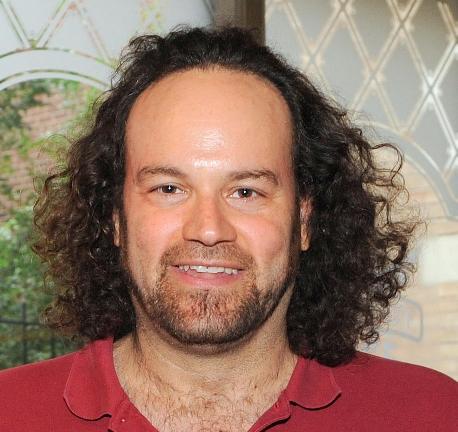AMSI-SSA Lecturer
Professor Jeffrey Rosenthal, University of Toronto
Tour dates: 28/11/2016 – 16/12/2016
Speaker Details

Professor Jeffrey Rosenthal
Professor of Statistics, University of Toronto
Jeffrey Rosenthal is a professor in the Department of Statistics at the University of Toronto. He received his BSc from the University of Toronto at the age of 20, his PhD in Mathematics from Harvard University at the age of 24, and tenure at the University of Toronto at the age of 29. He received the 2006 CRM-SSC Prize, the 2007 COPSS Presidents’ Award, the 2013 SSC Gold Medal, and teaching awards at both Harvard and Toronto. He is a fellow of the Institute of Mathematical Statistics and of the Royal Society of Canada. Rosenthal’s book for the general public, Struck by Lightning: The Curious World of Probabilities, was published in sixteen editions and ten languages, and was a bestseller in Canada, leading to numerous media and public appearances, and to his work exposing the Ontario lottery retailer scandal. He has also dabbled as a computer game programmer, musical performer, and improvisational comedy performer, and is fluent in French. His web site is www.probability.ca.
Despite being born on Friday the thirteenth, Rosenthal has been a very fortunate person.
Schedule & Registration
| Type | Date | Time | Host | Location | Register |
|---|---|---|---|---|---|
| Public | Tuesday 14 August | 6:30 PM (light catering provided after the event) | La Trobe University | Szental Lecture Theatre, HSZ-201, La Trobe University, Bundoora Campus | Reserve your seat |
| Specialist - Topic 2 | Wednesday 15 August | 12:30 PM | The University of Melbourne | Seminar Room 515 Melbourne School of Population and Global Health Level 5, 207 Bouverie Street, Carlton | All Welcome - registration not required |
| Public | Thursday 16 August | 6:30 PM (doors open at 6pm - light refreshments will be provided from 6pm) | Flinders University | Alere Function Centre, The Hub, Level 2, Bedford Park Campus, Registry Road, Bedford Park | Reserve your seat |
| Specialist - Topic 2 | Thursday 16 August | 1:00 PM | Flinders University | Room 5.29, Level 5, Tonsley Building, Flinders University, Tonsley, 1284 South Road, Clovelly Park, 5042 | Register for Specialist Lecture |
| Public | Monday 20 August | 6:30 PM (Doors open at 6pm. light refreshments will be provided) | Murdoch University | Robertson Lecture Theatre, Building 245, Science & Computing Building, Murdoch University | Reserve your seat |
| Public | Wednesday 22 August | 6:30 PM (Doors open at 5.45pm. Light refreshments provided from 5:45PM) | The University of Queensland | May Hancock Auditorium, The Women’s College, College Road, St Lucia | Reserve your seat |
| Specialist - Topic 1 | Wednesday 22 August | 2:00 PM | Queensland University of Technology and The University of Queensland | Rm GP-s303, Level 3 S Block, Queensland University of Technology, Gardens Point Campus | All Welcome - registration not required |
| Public | Thursday 23 August | 6:30 PM (Doors open from 6.00pm - light refreshments will be provided) | University of Technology Sydney | Aerial UTS Function Centre UTS Building 10 Level 7, 235 Jones Street, Ultimo | Reserve your seat |
| Specialist - Topic 2 | Friday 24 August | 2:00 PM | Macquarie University | Room 146, ACE room, 14 Sir Christopher Ondaatje Avenue, Macquarie University | All Welcome - registration not required. Lecture live streamed - for login details please contact AMSI |
Talk Abstracts
Specialist Lecture
The Mathematics of MCMC
Markov chain Monte Carlo (MCMC) algorithms, such as the Metropolis Algorithm and the Gibbs Sampler, are extremely useful and popular for approximately sampling from complicated probability distributions through repeated randomness. They are frequently applied to such diverse subjects as Bayesian statistics, physical chemistry, medical research, financial modeling, numerical integration, and more. This talk will use simple graphical simulations to explain how these algorithms work, and why they are so useful. It will also describe how mathematical analysis can provide deeper insights into their implementation, optimisation, and convergence times, and can even allow us to “adapt” the algorithms to improve their performance on the fly.
Public Lecture
From Lotteries to Polls to Monte Carlo
This talk will discuss randomness and probability, to answer such questions as: Just how unlikely is it to win a lottery jackpot? If you flip 100 coins, how close will the number of heads be to 50? How many dying patients must be saved to demonstrate that a new medical drug is effective? Why do strange coincidences occur so often? If a poll samples 1,000 people, how accurate are the results? How did statistics help to expose the Ontario Lottery Retailer Scandal? If two babies die in the same family without apparent cause, should the parents be convicted of murder? Why do casinos always make money, even though gamblers sometimes win and sometimes lose? And how is all of this related to Monte Carlo Algorithms, an extremely popular and effective method for scientific computing? No mathematical background is required to attend.
SSA Conference Plenary Talk
Adaptive MCMC For Everyone
Markov chain Monte Carlo (MCMC) algorithms, such as the Metropolis Algorithm and the Gibbs Sampler, are an extremely useful and popular method of approximately sampling from complicated probability distributions. Adaptive MCMC attempts to automatically modify the algorithm while it runs, to improve its performance on the fly. However, such adaptation often destroys the ergodicity properties necessary for the algorithm to be valid. In this talk, we first illustrate MCMC algorithms using simple graphical Java applets. We then discuss adaptive MCMC, and present examples and theorems concerning its ergodicity and efficiency. We close with some recent ideas which make adaptive MCMC more widely applicable in broader contexts.
Please contact events@amsi.org.au if you would like further information about the lecture tour.
